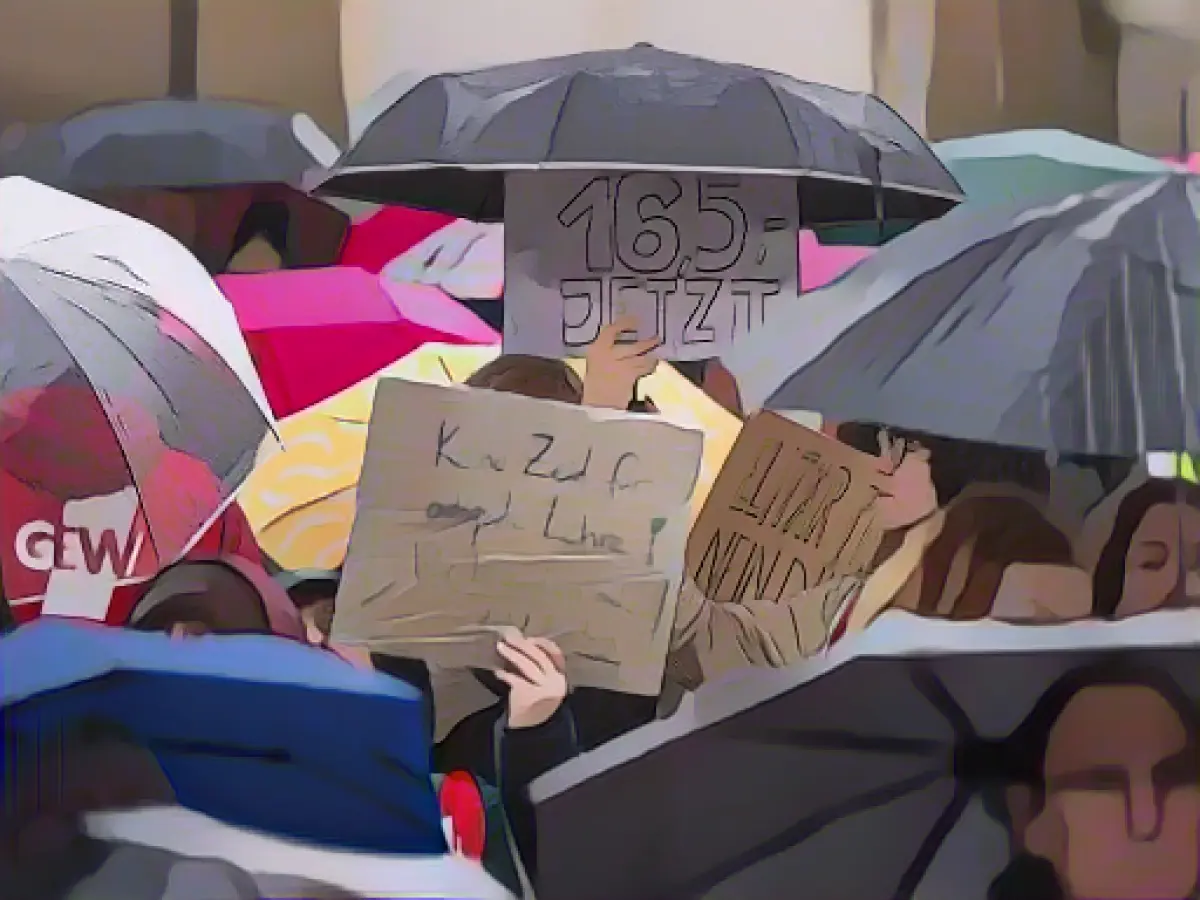University Unions raise the Alarm: Actions in over 50 German Cities
With warning strikes, rallies, and protests taking place at over 50 universities across Germany, public sector employees are demanding better compensation.
An alliance of trade unions, initiatives, student representatives, and higher education policy organizations united for a day of action, chanting "Put an End to Precarious Science." According to trade unions, hundreds of individuals participated in rallies in various cities, including Hamburg, Dresden, Cologne, and Munich.
During the current collective bargaining round for state employees, unions are advocating for a 10.5% salary increase, along with a minimum monthly wage hike of at least €500. They also aim to negotiate a collective agreement for student assistants. The massive prevalence of fixed-term contracts at universities is another concern. Verdi is advocating for at least 35% of academic staff to secure permanent contracts. Other demands include higher student loan interest rates and research and teaching funded independently from external grants and project financing.
In the coming days, warning strikes with demonstrations will occur in several cities, such as Gelsenkirchen, Cologne, Wuppertal, Bielefeld, Münster, Dortmund, and Duisburg.
- Taking a Stand for Student Assistants: Despite being overlooked in some sources, union efforts to improve conditions for student assistants are underway. Repositioning college research and teaching roles as digital agreements begins January 1, 2025, at the University of Hamburg. Wages for undergraduate and graduate research and teaching assistants will increase to €13.98 and €16.05, respectively, starting April 1, 2025. Moreover, the maximum weekly working hours for all students are set at 20, including reading periods.
- Addressing the Fixed-Term Contract Issue: Limited information is available on union demands for permanent employment contracts and potential changes to collective wage agreements for student assistants. The Fourth Bureaucracy Reduction Act, however, positions digital agreements as an option for open-ended contracts, which may indirectly benefit student assistants by reducing bureaucracy.
- Revising Acts for More Flexible Contracts: The Bureaucracy Reduction Act IV simplifies formal requirements for employment contracts, enabling digital agreements, which could indirectly benefit student assistants by reducing bureaucratic obstacles.
- Minimum Wage Increases: The national hourly minimum wage rises to €12.82, potentially setting a new wage floor for various sectors, including those involving student assistants.
Though specific union demands for student assistants' job security and better working conditions are not detailed in the provided sources, it is reasonable to assume that trade unions would push for more stable employment conditions for this group, potentially advocating for changes in collective wage agreements to enhance their legal protection. Detailed demands are typically outlined in dedicated collective bargaining agreements or union announcements outside the scope of these sources.








